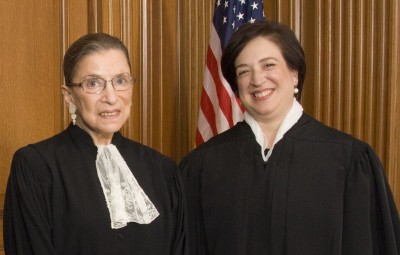Attorney Alleges Racial Discrimination in City's Hiring of Outside Counsel
Here's the story I wrote for the Connecticut Law Tribune regarding a civil-rights attorney who alleges her own civil rights were violated by the city of Bridgeport in its hiring of outside counsel to represent city employees:
osephine Miller is no stranger to litigation involving the city of Bridgeport and its school district.
In the highest profile case, which went to the state Supreme Court, the Danbury-based civil rights litigator represented parents who objected to the state's decision in 2011 to replace members of the elected school board with its own appointees.
Now Miller also has her own legal complaint pending. She is alleging in federal court that her civil rights were violated by the Bridgeport City Attorney, who is responsible for hiring outside counsel for school district employees entitled to city-paid legal representation. Specifically, Miller alleges that City Attorney Mark Anastasi paid a white attorney who formerly provided representation for a certain client, but that he has refused to pay Miller, who is an African American, for her work for the same client.
Miller's client, Andrew Cimmino, is a former Bridgeport elementary school teacher who was fired following sexual abuse allegations. Cimmino claims the allegations were fabricated by two school employees, and he has pursued civil claims against the employees and the school district. Miller defended Cimmino in a sexual harassment and constitutional-rights lawsuit the two school employees brought against the Bridgeport Board of Education, the city of Bridgeport and Cimmino.
Most recently, U.S. District Judge Vanessa Bryant has ruled that Miller's claims of racial discrimination regarding payment for her representation of Cimmino could survive a motion to dismiss. But the judge seemed to express some skepticism about the complaint, writing Miller "faintly alleged" her conspiracy claim.
Miller's new counsel in the civil rights action, Richard C. Gordon, of Bloomfield, said in an interview that it is "not unusual" to see skeptical language from judges at an early stage of court proceedings. Discovery is not complete, Gordon pointed out, and he expressed confidence that they will fully prove the allegations of racial discrimination.
Miller's complaint does not provide any information about how much she thinks she is owed. The complaint does says she has not been paid since January 2010 and that Cimmino's prior attorney was not required to first incur legal fees and expenses before he received reimbursement.
Bridgeport Associate City Attorney Betsy Edwards said the allegations of racial discrimination in the city attorney's hiring of outside counsel "are demonstrably untrue." She said Miller has personal knowledge that the City Attorney's Office has African-American attorneys on its staff and also hires them for outside counsel.
The bottom line, according to the city, is that Anastasi is the only one authorized by the city charter to decide if city employees can hire outside counsel paid for by public tax dollars, and that authorization has not been granted to Miller in the Cimmino case. Edwards said Miller is trying to "force and coerce the City Attorney's Office" into hiring her to represent city employees entitled to legal representation, Edwards said.
But Gordon said the choice of outside counsel should not belong to the city attorney. "Any plaintiff in any matter has the right to select his or her attorney," said Gordon. "It would patently unfair to essentially require a plaintiff to use an attorney that he or she does not want."
In her ruling, Bryant noted that Miller often represents non-school employee clients who are suing the city of Bridgeport. For that reason, the judge said, the city may be reluctant to hire Miller to represent its own employees.
"While the record does not indicate the nature of the various representations, it is not inconceivable, for example, that an attorney who represented the city would be privy to information which would be adverse to its interests in a subsequent action against the city," Bryant said.
The federal judge rejected Miller's request to amend her complaint to add new claims of tortious interference with her contracts with her clients, conspiracy between two or more individuals to unlawfully deprive Miller of the right to make and enforce contracts due to her race, and other claims.
According to the judge's opinion, Miller also wanted to add allegations that she was told by an assistant city attorney that the city would not settle lawsuits brought by Miller because she has so many cases pending against Bridgeport. Miller also wanted to add a second allegation that another assistant city attorney told Cimmino, the fired principal, that "he should not employ Miller, that she was often reversed on [court] decisions entered in her favor, and that the client should employ a different attorney."
Miller also wanted to add a third allegation she has not been paid for representing another Bridgeport city employee.
Bryant ruled that those allegations don't share a nucleus of common fact with what Miller has already alleged regarding Cimmino, the judge said.
"While Miller alleges that various Bridgeport city attorneys were involved in the alleged conspiracy, she has utterly failed to connect either the attorneys or the incidents she alleges to be involved," Bryant said. "Moreover, although she alleges that this conspiracy's goal was to deprive her of her right to make or enforce contracts based on her race, Miller has failed to allege any inference of discrimination in the new incidents she seeks to add to the action."
Gordon said he will file a new complaint on Miller's behalf with the allegations that the judge did not permit to be added to the Cimmino case as well as the conspiracy claim regarding the Cimmino situation.
Read more: http://www.ctlawtribune.com/id=1202649823476/Attorney-Claims-City-Refuse...

 Lawyer and Legal Journalist
Lawyer and Legal Journalist